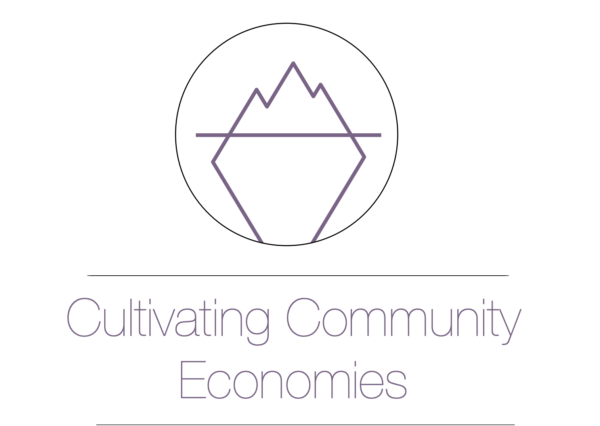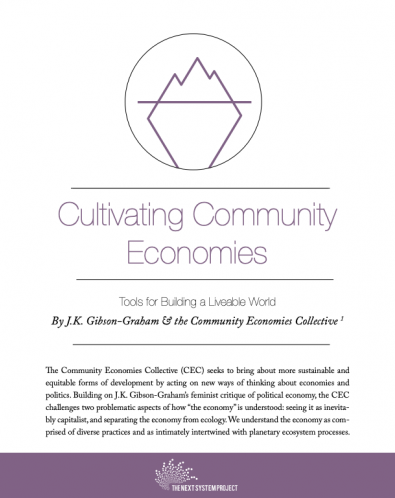Tools for Building a Liveable World
The Community Economies Collective (CEC) seeks to bring about more sustainable and equitable forms of development by acting on new ways of thinking about economies and politics. Building on J.K. Gibson-Graham’s feminist critique of political economy, the CEC challenges two problematic aspects of how “the economy” is understood: seeing it as inevitably capitalist, and separating the economy from ecology. We understand the economy as comprised of diverse practices and as intimately intertwined with planetary ecosystem processes.
In a complexly determined world there are multiple ways of enacting change; we are energized by possibilities that are afforded by this framing of economy.
To try to mobilize social transformation we have worked on 1) developing a new language of the diverse economy, 2) activating ethical economic subjects, and 3) imagining and enacting collective actions that diversify the economy. For us, these actions comprise a “post-capitalist politics.” We do not place “the economy” at the center of social change, as for us there is no privileged “center,” nor
one determining dynamic of transformation. We believe in starting where we are, building other worlds with what we have at hand. Our particular focus is on identifying, gathering, and amplifying ethical economic practices that already exist—and that are prescient of “the world we want to live in.”
Key Commitments
- The Community Economies Collective adopts an anti-essentialist thinking approach. Instead of reducing the world to a few key determinants, we understand the world as shaped by multiple and interacting processes, only some of which we can apprehend. This approach helps us recognize the power and efficacy of things that might seem small and insignificant. It also means that we are open to the unexpected and the unknown.
- The Community Economies Collective affirms that lives unfold in a “pluriverse” rather than a “universe.” This means there are a range of solutions and strategies for change, and multiple pathways towards more sustainable and equitable worlds.
- With others, the Community Economies Collective is involved in ongoing processes of learning and “becoming ethical subjects” through negotiation with human and “earth others” (species, ecologies, landscapes and seascapes). We aim for ongoing, courageous, and honest ethical relationships and transformation rather than a utopia. We recognize that there is probably no final or most desirable state of ethical being.






